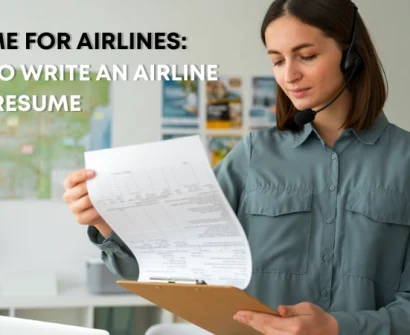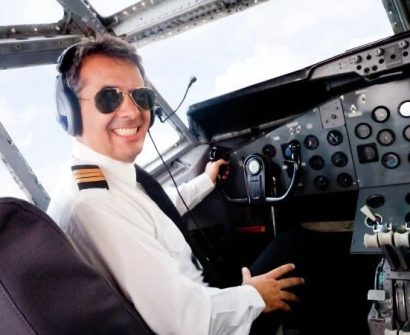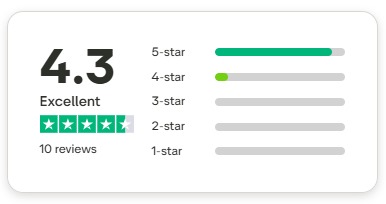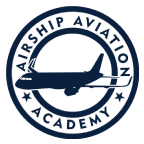Currently Empty: ₹0.00
Preparing for the Airline Transport Pilot License (ATPL) can be overwhelming. During a recent expert-led webinar, several aspiring airline pilots raised important questions about exam eligibility, viva voce, exam strategy, and additional qualifications. This FAQ-style blog consolidates those discussions into clear, technical answers, giving you a practical guide to navigate the ATPL process with confidence.
1. What is the ATPL and why should I start preparing for it early?
The ATPL (Airline Transport Pilot License) is the highest category of pilot license, mandatory for flying as a pilot-in-command on large, two-pilot aircraft above 5700 kg. Starting ATPL preparation early—especially now that exam validity has been extended to 5 years—is advantageous. It gives you a competitive edge during airline hiring, as many applicants are CPL holders. Clearing ATPL exams early strengthens your résumé and readiness for command positions.
2. What are the eligibility criteria to sit for the ATPL exams?
To appear for the ATPL written exams, you must:
- Hold a Commercial Pilot License (CPL) with multi-engine rating.
- Be proficient in English at ICAO level 4 or above.
- Have passed Class 2 medical for exam booking (Class 1 medical is required for license issue).
- Be at least 21 years old at the time of license issuance (you can take exams earlier but license will be issued only after 21).
- Meet flight experience requirements (1500 hours total, including 500 PIC) at the time of license issue.
3. How many papers are there in the ATPL exams, and what is the passing criteria?
There are five written papers, but they fall primarily into three subjects: Navigation, Radio Aids, and Meteorology. The passing score is 70% in each paper. Exams are computer-based multiple-choice questions. You can attempt papers in any order.
4. What is the validity period of the ATPL exam credit?
The validity of your ATPL exam results is 5 years from the date of passing. This means you have five years to complete all necessary steps—including accumulating flight hours, passing the viva voce, and license application—without reattempting the exams.
5. Can you explain the viva voce process for ATPL?
The viva voce (oral exam) is conducted only for Navigation and Radio Aids subjects, not for Meteorology. It is held at DGCA’s Flight Standards Directorate by a panel of 2 to 5 officers, who are often experienced airline pilots on deputation.
- If you clear Navigation and Radio Aids together, you give one combined viva.
- If taken separately, you give two vivas.
- You get three attempts to clear the viva for each subject. If you fail after three attempts, you must retake the written exams for that subject.
6. When can I appear for the viva after clearing the written exams?
There must be at least one exam session gap between passing the written exam and appearing for the viva. For example, if you clear the written exam in April, the earliest viva you can appear for is in the July session. However, you can choose to delay your viva attempt for personal reasons, though extended delays might raise concerns during interviews.
7. What happens if I fail the viva voce? How many attempts do I get?
You get a total of three attempts for the viva exam per subject. If you fail in the first attempt, you can reapply in the next session(s). If you do not clear the viva after three attempts, you are required to retake the written exam to reset your attempts.
8. Why is it recommended to attempt Navigation and Radio Aids exams together?
Attempting both together is advised because:
- It requires only one combined viva instead of two separate vivas.
- The subjects are closely related technically, so studying them together is efficient.
- It accelerates the certification process by reducing interview and administrative workload.
9. What are some of the technical topics covered in the viva voce for Navigation and Radio Aids?
In Navigation, expect questions on:
- Earth’s shape (oblate spheroid), great circle and rhumb line routes, dead reckoning, time conversions.
- Advanced concepts like Required Navigation Performance (RNP), Area Navigation (RNAV), and onboard self-contained aids.
In Radio Aids, expect:
- Principles of VOR, DME, ILS, and radar (primary and secondary).
- Propagation phenomena such as dead space, skip distance, Doppler effects, quadrantal error, and coastal refraction.
- Operational challenges such as GPS spoofing and signal interference.
10. Does Meteorology require a viva exam?
No, Meteorology does not have a viva exam. It is a written exam only. However, basic meteorology knowledge may be assessed during the Navigation/Radio Aids viva or pilot interviews.
11. What are the key Meteorology topics I should focus on for the ATPL exam?
Key areas include:
- Standard Atmosphere (ISA) and deviations.
- Pressure systems and gradient winds.
- Cloud types, especially cumulonimbus, and associated hazards.
- Icing phenomena (clear ice and crystal air icing).
- Types of turbulence: convective and clear air turbulence (CAT).
- Reading and interpreting jet stream charts and wind velocities.
12. How do recent developments like GPS spoofing affect pilot knowledge requirements?
GPS spoofing—deliberate jamming or falsification of GPS signals—has become a significant operational challenge, particularly near geopolitical sensitive zones like Indo-Pakistan or Iran-Turkey borders. Pilots must understand its effects on aircraft navigation systems, such as erratic map displays and heading deviations, and how to mitigate these risks.
13. Can I delay the viva attempts indefinitely?
While there is no formal embargo on delaying viva attempts, it is discouraged. Prolonged delays may cause interviewers to question your commitment and preparedness, potentially complicating your selection chances.
14. What additional courses can I pursue during lull periods to improve my employability?
Courses such as Safety Management Systems (SMS), Aviation Management, and other IATA-certified programs are highly recommended. They provide critical knowledge about airline operations, safety risk assessment, and compliance, making your résumé stand out.
15. What is the typical timeline after being hired by an airline before I start line flying?
After absorption, airline training usually takes about 6 to 12 months before you are line released to operate commercial flights. During this time, you accumulate the required flight hours towards your license issue.
16. How can I prepare for the ATPL exams effectively?
- Use your CPL study notes as a base and focus on ATPL-specific materials.
- Consider online or classroom courses tailored for ATPL, including mock test series.
- Give special attention to Navigation and Radio Aids together to benefit from combined study and viva reduction.
- Practice viva-style questioning with mentors.
- Keep abreast of current operational challenges like GPS spoofing and icing.
17. Is it mandatory to have a Level D simulator experience for the ATPL?
Yes, a recent Level D simulator session (within 6 months) is required for instrument rating renewal and license issue. This ensures you maintain instrument flight proficiency consistent with current airline standards.
18. How do I apply for the ATPL exams and vivas?
Applications are submitted through the DGCA or authorized examination portals (like PARIKSHA). For the viva, you must fill out a separate application after passing the written exam. The viva cannot be scheduled in the same session as the written exam clearance, necessitating at least a one-session gap.
19. What should I carry on exam day?
- Valid ID and exam hall ticket
- Approved scientific calculator (non-programmable)
- Pencil and eraser
- Analog watch (electronic or smart watches are generally prohibited)
20. How can I track upcoming ATPL exam sessions and updates?
Keep regular tabs on DGCA and PARIKSHA websites for exam schedules, on-demand sessions, and application deadlines.
Final Thoughts
The ATPL process is complex, but systematic preparation and a clear understanding of requirements make it manageable. Utilize this lull period effectively by clearing exams early, pursuing relevant ancillary courses, and preparing thoroughly for the viva. The 5-year exam validity provides flexibility—make it work in your favor.
If you have more questions or want detailed guides on any specific part of the ATPL process, feel free to reach out or enroll in expert-led preparatory courses designed to guide you every step of the way.










